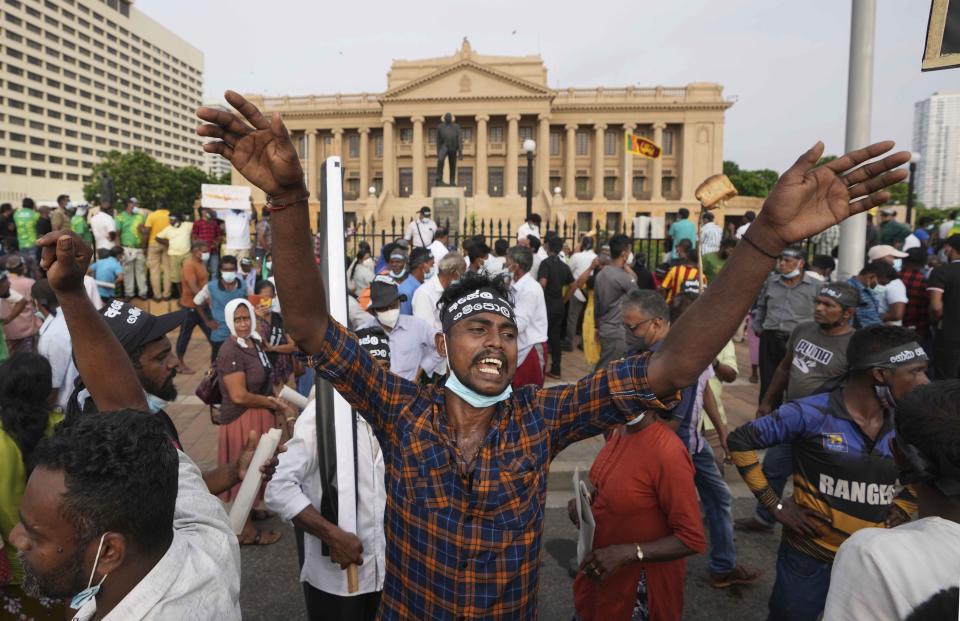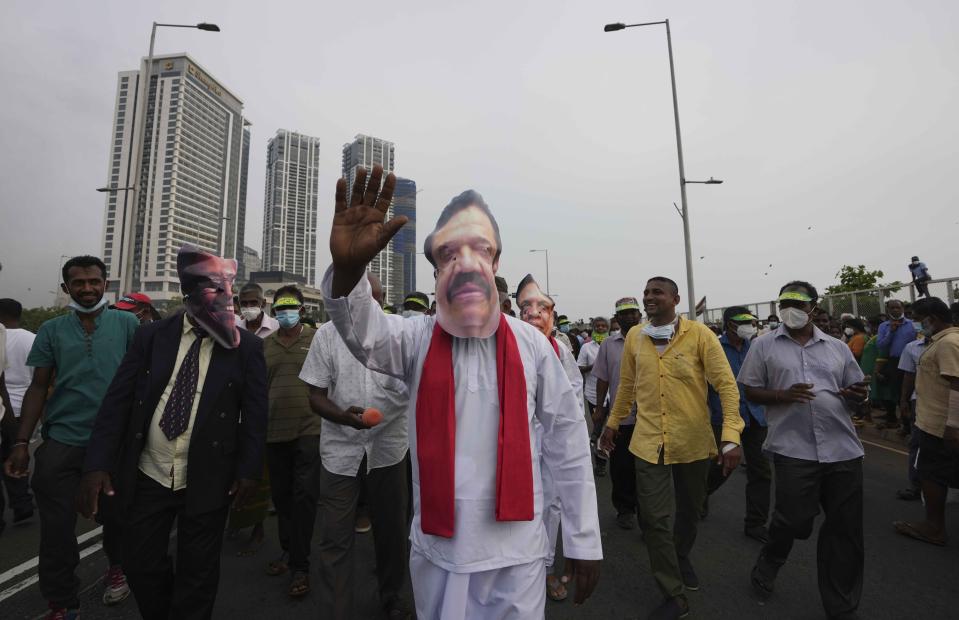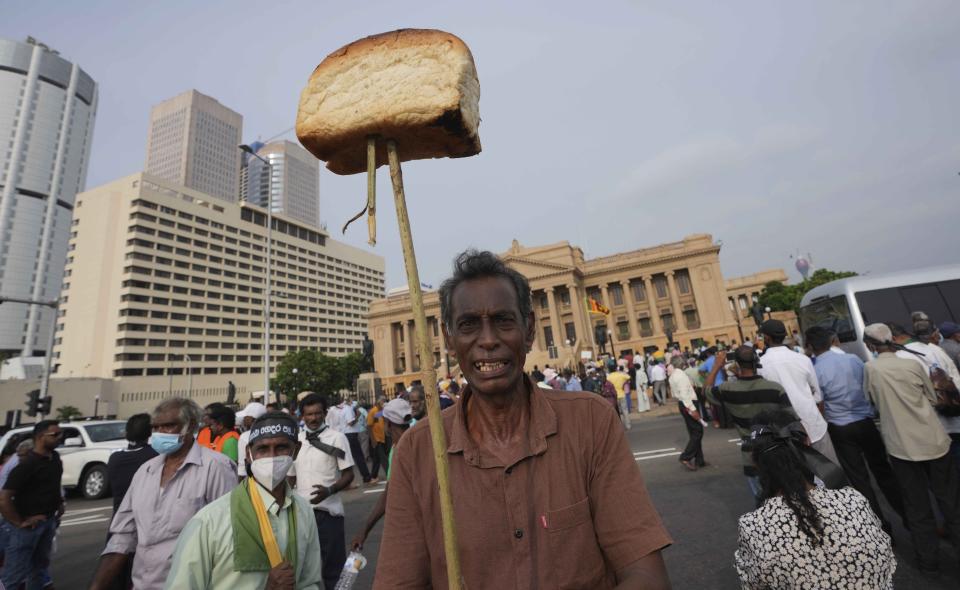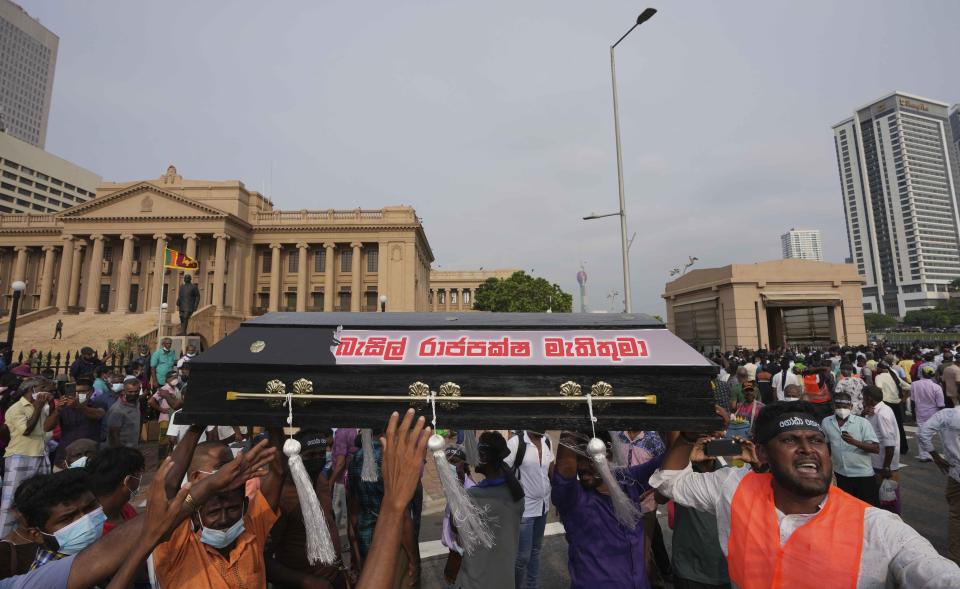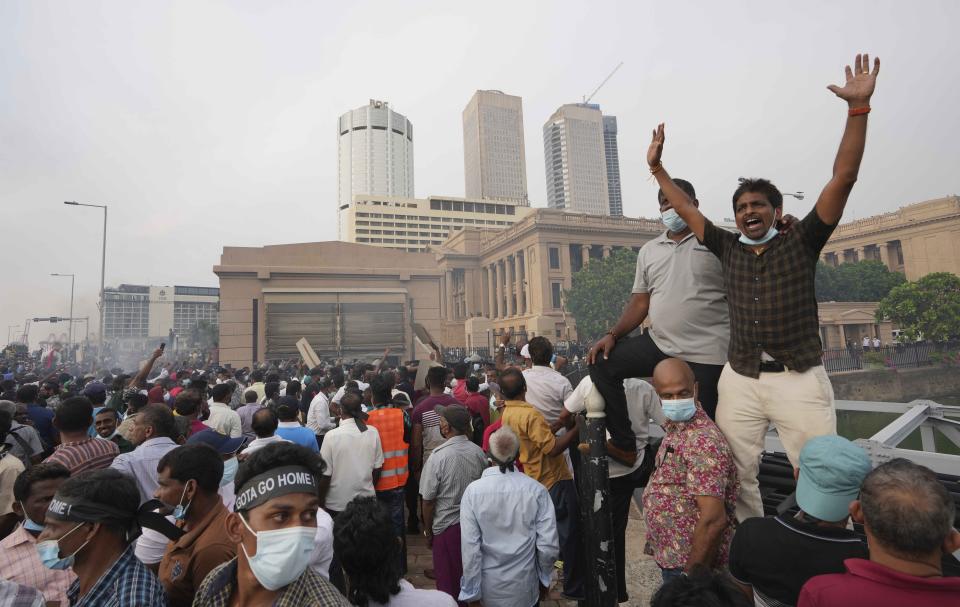Protesters blame Sri Lanka leader for severe economic crisis
COLOMBO, Sri Lanka (AP) — Anti-government protests roiled Sri Lanka's capital on Tuesday amid demands that President Gotabaya Rajapaksa resign, as the country suffers its worst economic crisis within memory.
Tens of thousands of people gathered outside of the president's office in Colombo, led by supporters of the opposition party of the United People's Force.
Opposition leader Sajith Premadasa addressed the demonstration, declaring it marked the beginning of a campaign to oust the government.
“You have been suffering now for two years. Can you suffer further?" he told the large crowd carrying signs and anti-government banners.
Premadasa described the sitting government as “evil” and blamed it for many of the country's economic woes.
Demonstrators accused the government of mismanaging the economy and creating a foreign exchange crisis that has led to shortages of essentials like fuel, cooking gas, milk powder and medicine.
Sri Lanka is struggling to pay for imports as its foreign reserves are at an all-time low.
Rajapaksa is scheduled to address the nation on Wednesday. He is expected to speak about the economic crisis and possible solutions.
Fuel shortages have curbed transportation within the country, including of essential supplies, and have led to hours-long daily power cuts.
In the face of the fiscal crisis, Sri Lanka's Central Bank floated the national currency last week, resulting in its devaluation by 36% and a further sharp rise in prices.
Authorities have expanded banned imports to include some fruits and milk products, alongside the existing ban on imports of cars, floor tiles and other products, to staunch the outflow of foreign currency.
Sri Lanka's fiscal crisis is partly driven by outstanding foreign debts of some $7 billion.

 Yahoo News
Yahoo News 


